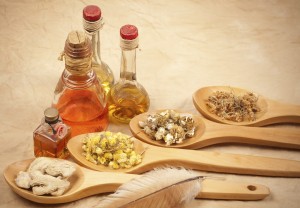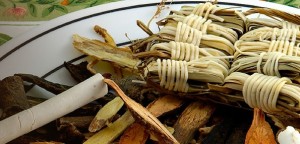Blood pressure is the pressure of the blood in the arteries as it is pumped around the body by the heart. Blood pressure does not stay the same all the time. It changes to meet your body’s needs. It is affected by various factors, including body position, breathing, emotional state, exercise and sleep. It’s only when blood pressure consistently remains high or low that it causes problems. And there are lots of natural treatments available if this should happen.
What is “normal” blood pressure?
There is no ‘normal’ or ‘ideal’ blood-pressure reading, as it can differ depending on fitness, age, medication taken, pregnancy, and other lifestyle factors. The following figures should only be used as a guide:
- low blood pressure – below 90/60
- normal blood pressure – generally between 90/60 and 120/80
- high–normal blood pressure – between 120/80 and 140/90
- high blood pressure – equal to or more than 140/90
- very high blood pressure – equal to or more than 180/110.
Managing high blood pressure
If your blood pressure remains high, it can lead to serious health problems, like heart attack, stroke, heart failure, or kidney disease. You will be more at risk of these problems if you smoke, are overweight, physically inactive, have diabetes, high cholesterol, are socially isolated or have depression.
Lifestyle changes are very important to help manage high blood pressure and lower your risk of cardiovascular disease. Suggestions include:
- Reduce your excess body weight.
- Be physically active.
- Limit your alcohol intake.
- Quit smoking.
- Decrease your salt/sodium intake.
- Increase your potassium intake by eating a wide variety of fruit, vegetables, plain unsalted nuts and legumes.
Some people may also need medicine to manage high blood pressure, but it is still important for them to make lifestyle changes too.
High blood pressure and daily activity
 Try to do at least 30 minutes of moderate-intensity physical activity on most, if not all, days of the week. This can be done in bouts of 10 minutes or longer, if that is more convenient.
Try to do at least 30 minutes of moderate-intensity physical activity on most, if not all, days of the week. This can be done in bouts of 10 minutes or longer, if that is more convenient.
Physical activity is any form of bodily movement performed by our large muscle groups. Moderate-intensity physical activity (energetic activity that doesn’t make you breathless), such as brisk walking or cycling, is enough to give you health benefits.
Some types of exercises, such as lifting heavy weights and body presses, can actually raise your blood pressure. You should avoid these if you have high blood pressure. Check with your doctor before starting a new activity or increasing your level or intensity. Be active safely. Build up your levels of activity gradually.
High blood pressure and diet
Healthy eating is important in managing high blood pressure and reducing your risk of heart disease. Enjoying a variety of foods from the different food groups is the key to healthy eating.
Try to include every day:
- vegetables
- whole grains
- lean meats
- oily fish
- fruit
- reduced-fat, low-fat or no-fat dairy products
- monounsaturated or polyunsaturated vegetable and seed oils
- nuts, seeds and legumes.
Salt intake and high blood pressure
Reducing the amount of salt you eat can also help to manage or even avoid high blood pressure. To help reduce your salt intake you should:
- Choose low-salt or reduced-salt food where available.
- Avoid adding salt to cooking or at the table – flavour meals with herbs and spices instead.
- Avoid high-salt foods, such as potato crisps or chips, salted nuts, commercial sauces (such as tomato, soy and fish), processed meat and most takeaway foods.
Nutrients & Herbs To Lower Blood Pressure
 There are many natural supplements to effectively lower blood pressure, like magnesium, hawthorne, and fish oils. Acupuncture is also very regulating for blood pressure, and is an effective option to include in your healthy blood pressure program. As always, the best approach we take is finding out the cause of your high blood pressure, whether it is related to your diet, to lifestyle factors, or to underlying problems with your thyroid, adrenals, or kidneys.
There are many natural supplements to effectively lower blood pressure, like magnesium, hawthorne, and fish oils. Acupuncture is also very regulating for blood pressure, and is an effective option to include in your healthy blood pressure program. As always, the best approach we take is finding out the cause of your high blood pressure, whether it is related to your diet, to lifestyle factors, or to underlying problems with your thyroid, adrenals, or kidneys.
What About Low Blood Pressure?
Generally, low blood pressure is not viewed with the same caution as high blood pressure, however, it too has its concerns. Even moderate forms of low blood pressure can cause not only dizziness and weakness but also fainting and a risk of injury from falls.In addition, severely low blood pressure from any cause can deprive your body of enough oxygen to carry out its normal functions, leading to damage to your heart and brain.
For some people, low blood pressure can signal an underlying problem, especially when it drops suddenly or is accompanied by signs and symptoms such as:
- Dizziness or lightheadedness
- Fainting (syncope)
- Lack of concentration
- Blurred vision
- Nausea
- Cold, clammy, pale skin
- Rapid, shallow breathing
- Fatigue
- Depression
- Thirst
Conditions that can cause low blood pressure
 Some medical conditions can cause low blood pressure. These include:
Some medical conditions can cause low blood pressure. These include:
- Pregnancy. Because a woman’s circulatory system expands rapidly during pregnancy, blood pressure is likely to drop. This is normal, and blood pressure usually returns to your pre-pregnancy level after you’ve given birth.
- Heart problems. Some heart conditions that can lead to low blood pressure include extremely low heart rate (bradycardia), heart valve problems, heart attack and heart failure.
These conditions may cause low blood pressure because they prevent your body from being able to circulate enough blood.
- Endocrine problems. Thyroid conditions — such as parathyroid disease — adrenal insufficiency (Addison’s disease), low blood sugar (hypoglycemia) and, in some cases, diabetes can trigger low blood pressure.
- Dehydration. When you become dehydrated, your body loses more water than it takes in. Even mild dehydration can cause weakness, dizziness and fatigue. Fever, vomiting, severe diarrhea, overuse of diuretics and strenuous exercise can all lead to dehydration.
Far more serious is hypovolemic shock, a life-threatening complication of dehydration. It occurs when low blood volume causes a sudden drop in blood pressure and a reduction in the amount of oxygen reaching your tissues. If untreated, severe hypovolemic shock can cause death within a few minutes or hours.
- Blood loss. Losing a lot of blood from a major injury or internal bleeding reduces the amount of blood in your body, leading to a severe drop in blood pressure.
- Severe infection (septicemia). Septicemia can happen when an infection in the body enters the bloodstream. This condition can lead to a life-threatening drop in blood pressure called septic shock.
- Severe allergic reaction (anaphylaxis). Anaphylaxis is a severe and potentially life-threatening allergic reaction. Common triggers of anaphylaxis include foods, certain medications, insect venoms and latex. Anaphylaxis can cause breathing problems, hives, itching, a swollen throat and a drop in blood pressure.
- Lack of nutrients in your diet. A lack of the vitamins B-12 and folate can cause a condition in which your body doesn’t produce enough red blood cells (anemia), causing low blood pressure.
Medications that can cause low blood pressure
Some medications you may take can also cause low blood pressure, including:
- Diuretics (water pills), such as furosemide (Lasix) and hydrochlorothiazide (Microzide, Oretic)
- Alpha blockers, such as prazosin (Minipress) and labetalol
- Beta blockers, such as atenolol (Tenormin), propranolol (Inderal, Innopran XL, others) and timolol
- Drugs for Parkinson’s disease, such as pramipexole (Mirapex) or those containing levodopa
- Certain types of antidepressants (tricyclic antidepressants), including doxepin (Silenor), imipramine (Tofranil), protriptyline (Vivactil) and trimipramine (Surmontil)
- Sildenafil (Viagra) or tadalafil (Cialis), particularly in combination with the heart medication nitroglycerin
Natural Treatments For Low Blood Pressure
 Again, if the symptoms of low blood pressure are consistent, it’s important you talk to your Health Practitioner about uncovering the underlying causes. Iron deficiency is often a common problem occurring simultaneously in low blood pressure, and other supplements like nettle and ginseng, which are wonderful tonics, can work to increase body function and blood pressure.
Again, if the symptoms of low blood pressure are consistent, it’s important you talk to your Health Practitioner about uncovering the underlying causes. Iron deficiency is often a common problem occurring simultaneously in low blood pressure, and other supplements like nettle and ginseng, which are wonderful tonics, can work to increase body function and blood pressure.
If you suffer blood pressure problems, talk to us about how we can help.


